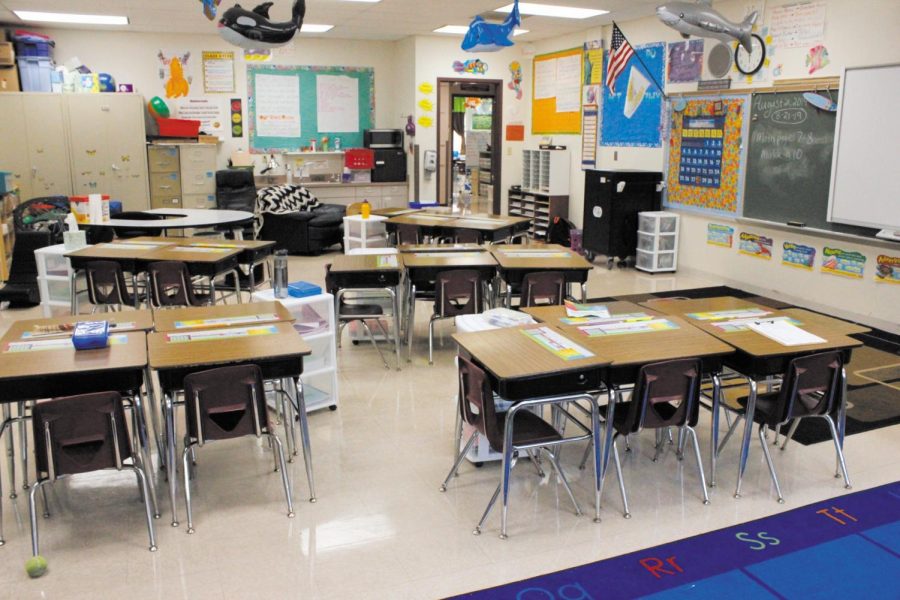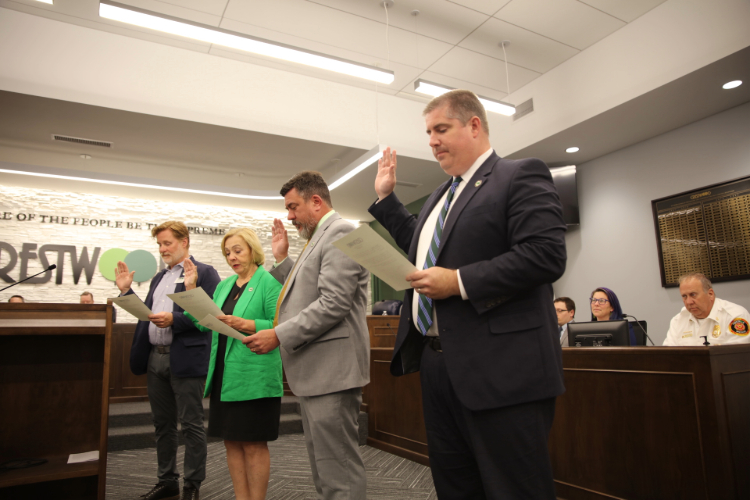In the final stage of the four-month process leading up to the Mehlville School District’s new strategic plan, a consultant is now conducting telephone surveys asking residents for their thoughts on their schools and what they envision in the district’s future.
The questions for the telephone survey were formulated from in-person interviews and focus groups with Mehlville residents, parents, critics, church and community groups, students, staff, teachers and Board of Education members, according to Opinion Research Specialists consultant Marc Maness.
“We were welcomed at kitchen tables across the district,” Maness said. “It’s really been a pleasure.
“I’m very impressed with the community and with the Mehlville School District as a whole,” he added.
Maness is based in Springfield, where he was the director of community relations and strategic planning for Springfield Public Schools for 17 years, nine of those working under Mehlville Superintendent Norm Ridder, who retired from Springfield in June before coming to Mehlville in July.
Although Maness joined Opinion Research Specialists recently, the company dates to 1991 and is owned by a husband-and-wife team, Mark and Kathryn Ellickson, who analyze and crunch the statistical data gained from the surveys.
Using information he learned from focus groups comprised of the many groups that make up Mehlville — students, teachers, parents, residents, board members, administrators — Maness developed specific questions to ask in scientific phone surveys of random district voters to see what they want in their school district.
Typically, a strategic plan will lay out three goals for the district, related to students, staff and processes. After Maness submits his data and recommendations, Ridder and Mehlville’s Central Office team will develop a formal strategic plan that they will present to the board for approval at the board’s Dec. 13 retreat.
In the past, Mehlville has launched plans that district officials called strategic plans in preparation for bond issues that often failed at the ballot box, and the plans were not acted on in future years.
Asking about the community’s support for a potential bond issue will be part of the new strategic plan, Ridder told the Call, but the plan he proposes goes beyond just that to get to the very heart of what the community and the district wants, using the principles of human-centered design, which the district can then base its decisions on directly.
“This may be, as far as I know, the first randomly selected parent survey that you’ve conducted in the school district,” Maness noted. “It will give you a little evidence about what parents think about how you manage money … We’ll give you a wealth of information, and it will be accurate. We’ll make sure we get you good data.”
Ridder also gave an overview of his initial take on the district, which he is leading as interim superintendent this school year. He said he noticed that everyone at Mehlville works hard, but they don’t work strategically.
“We don’t know what the community thinks, and really the community needs to tell us what the community wants,” he said. “I can give you the assurance once this is all said and done, the community will have spoken, and we will hear them. A higher level of satisfaction, a higher level of engagement, those are really the outcomes that you’re going to see when you really take a strong, systemic look at this.”
The district should have a five-year facilities plan that goes beyond its current plan, which is based on maintenance, to add ways to improve facilities over five years, along with a five-year instructional plan that is not related to state standards or tests or Common Core, but is based directly on how the community wants to see its children educated, Ridder added.
The five-year plans and strategic plan are constantly tweaked as new information is learned, which helps with constant improvement, he noted.
“The community’s always telling us what they want, and they’ll do that because the community will know what is next,” he said. “It’s just a constant change to make it better.”
When Maness gave a preview of the results from the strategic plan to Ridder and the Board of Education at the board retreat last month, he said that the bulk of the data for the plan had yet to be collected, since it would come from the phone surveys. The district waited until after the Nov. 4 election to call anyone so that there was a higher chance they would be willing to answer questions, and so they could get the most up-to-date voter lists from the county.
After 40 hourlong formal interviews of students, teachers, parents and community members — both engaged and disengaged — Maness said he was able to recognize some patterns in the data, including what keeps students and teachers engaged in the district’s schools.
“When I asked teachers and students, ‘What, at the end of the day, makes for an exceptionally good day?’ they talked about the a-ha moments in the classroom, they talked about the light-bulb moments,” he said.
One of the concerns that emerged from the talks is that the district has no clear long-term plan, the seeming randomness of decisions the district makes and a lack of understanding of where the district’s money has historically gone. Since some residents have lived in the district for many years or a lifetime, they could have impressions they’ve formed of the district from decades ago, Maness noted.
Some of the community members Maness interviewed showed what he called “pockets of excitement” about dramatic initiatives like the district’s auditorium, but they still have a sense of, “Where did the money go?” and do not understand how and why decisions about buildings and other critical needs are made.
“A common refrain was, ‘We do the best with what we have, I know this is a little outdated, but the teachers make it happen anyway,'” he said.
Some of the strengths Maness noticed include a district and teachers very focused on students and helping them learn and the excellent support administrators provide to teachers. The impact and importance of technology, as well as its uneven availability, was raised again and again, he added.
Another key common thread among the focus groups Maness talked with is money — or lack of it.
“There’s a lot of talk about resources in this district, and lack of resources directly impacting classroom and student engagement,” he said. “(Teachers are) very aware that there’s a lot of talk about resources and lack thereof and how difficult it is to get community support.”



















